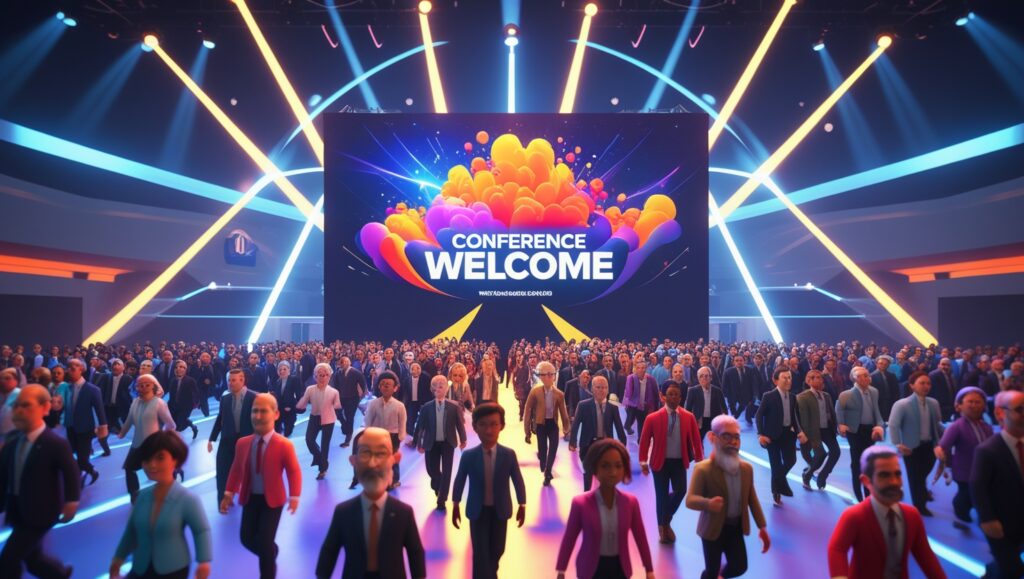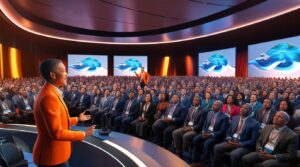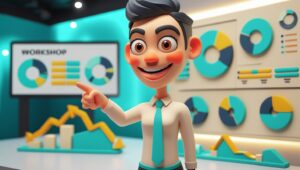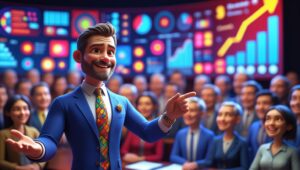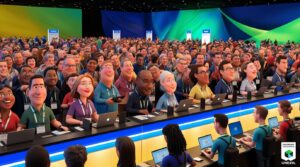Did you know that by 2030, nearly two-thirds of the world’s seafood will come from aquaculture rather than traditional fishing? With rising demand for protein and sustainable food systems, the Aquaculture Conference has become a vital event for researchers, policymakers, and industry leaders.
Within the first 100 words, the conference establishes itself as a hub for discussions on sustainable seafood, aquafarming technology, marine policy, and the blue economy. Attending such an event equips professionals with the insights needed to balance productivity with environmental responsibility.
Why the Aquaculture Conference Matters
The Aquaculture Conference plays a crucial role in shaping the future of global food systems and marine resource management.
Key Benefits of Attending
- Cutting-Edge Research: Access the latest studies in aquaculture genetics, breeding, and disease management.
- Networking Opportunities: Connect with fish farmers, policymakers, entrepreneurs, and marine scientists.
- Global Policy Impact: Engage in discussions that shape regulations on seafood trade and sustainability.
- Technology Showcases: Explore innovations in automation, AI-driven aquafarming, and smart feed systems.
By attending, participants can align with global sustainability goals while seizing opportunities in the fast-growing aquaculture sector.
Major Themes at Aquaculture Conferences
1. Sustainable Seafood and Food Security
- Reducing pressure on wild fish populations
- Meeting the protein needs of a growing population
- Balancing profitability with ecological responsibility
2. Aquafarming Technology and Innovation
- IoT-based monitoring for water quality
- AI tools for feed optimization and growth tracking
- Advances in recirculating aquaculture systems (RAS)
3. Marine Policy and the Blue Economy
- Role of aquaculture in global climate strategies
- Government regulations on sustainable fisheries
- Expanding aquaculture’s contribution to the blue economy
4. Aquatic Animal Health and Nutrition
- Preventing disease outbreaks in aquaculture systems
- Sustainable fish feed alternatives (insects, algae, plant proteins)
- Improving breeding practices for resilience
5. Climate Change and Ocean Sustainability
- Impact of ocean warming and acidification
- Restorative aquaculture (oyster reefs, seaweed farming)
- Coastal community resilience programs
Who Should Attend the Aquaculture Conference?
This conference attracts a diverse audience from across the seafood value chain.
- Marine Scientists & Academics: Present groundbreaking research.
- Fish Farmers & Aquaculture Operators: Learn best practices for scaling operations.
- Policy Makers & Regulators: Shape policies on sustainable seafood trade.
- Investors & Entrepreneurs: Explore opportunities in the fast-growing aquaculture sector.
- NGOs & Environmental Groups: Collaborate on conservation-driven initiatives.
- Journalists & Media Experts: Cover trends in the blue economy and food security.
How the Aquaculture Conference Shapes the Future of Seafood
Driving Technological Adoption
Through exhibitions and case studies, participants discover tools like AI-based disease prediction and smart aquaculture sensors.
Influencing Global Trade Policies
Governments and trade bodies use conference insights to set seafood export standards and environmental benchmarks.
Supporting Sustainable Practices
Workshops promote eco-friendly aquaculture systems, helping reduce the industry’s carbon footprint.
Empowering Local Communities
By focusing on small-scale aquaculture operations, the conference highlights ways to uplift coastal communities and improve livelihoods.
Tips for Maximizing Your Experience
To make the most of your attendance, keep these strategies in mind:
- Set Clear Goals – Identify whether you want to publish, network, or explore new technologies.
- Engage in Workshops – Practical demonstrations often provide actionable skills.
- Network Actively – Use apps, panels, and networking breaks to meet collaborators.
- Track Trends – Pay attention to sustainability themes shaping future policies.
- Leverage Digital Resources – Many conferences provide recordings, abstracts, and post-event publications.
Q1. What is the Aquaculture Conference?
It is an international event focused on sustainable seafood, aquafarming technology, marine policy, and innovations in the blue economy.
Q2. Who can attend the Aquaculture Conference?
The event is open to marine scientists, policymakers, fish farmers, investors, NGOs, and media professionals.
Q3. What are the main topics covered?
Typical themes include sustainable seafood, aquaculture innovation, marine conservation, and global trade policies.
Q4. How can I register for the conference?
Registration details are usually available via official conference websites or through Conferences Daily.
Q5. Why is the Aquaculture Conference important for businesses?
It provides insights into new markets, investment opportunities, and sustainable technologies that can drive profitability.
Conclusion
The Aquaculture Conference is more than a professional gathering—it’s a platform shaping the future of seafood production, sustainability, and marine innovation. By attending, participants gain exclusive access to cutting-edge technologies, policy discussions, and global networking opportunities that strengthen the aquaculture industry.
If you’re committed to advancing sustainable aquaculture and exploring opportunities in the blue economy, this is the event you cannot afford to miss.
👉 Register now at Conferences Daily and be part of the global conversation driving the future of aquaculture.
